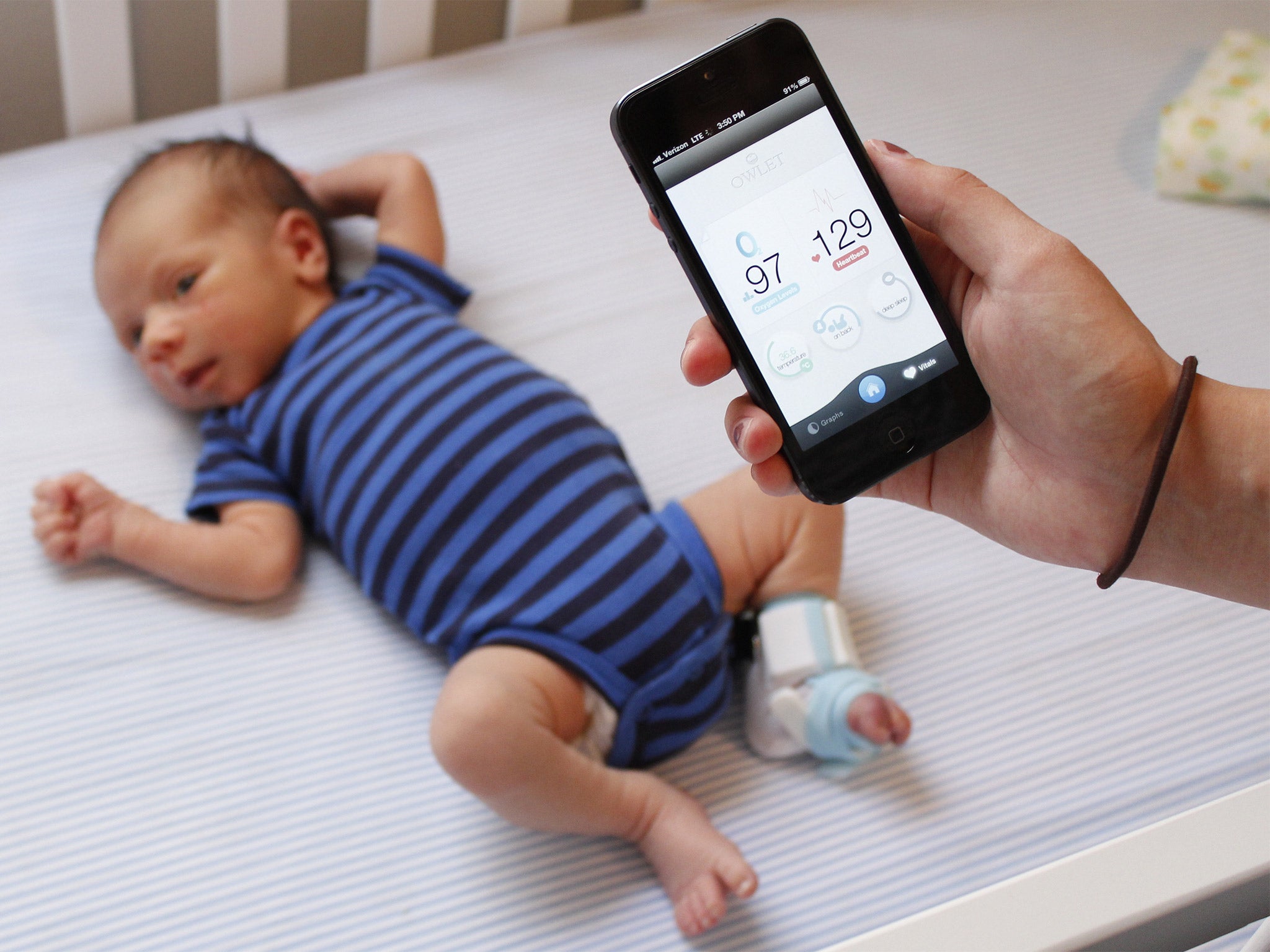Infant heart-rate monitors have no proved medical use, claims expert doctor
Devices, popular in the US, have not had proper clinical tests

Baby monitors which send parents live information about their child’s heart rate, breathing and temperature have “no proved use in safeguarding infants”, despite their growing popularity in the USA, a British expert has warned.
Although the monitors are not yet available in Europe, they represent a growing industry in America where they are marketed as offering “reassurance” to parents.
However, David King, a clinical lecturer in paediatrics at the University of Sheffield, said that parents should be aware that none of the existing products had been regulated as medical devices and therefore had not had to undergo trials of their effectiveness.
The devices, which can be worn by newborn babies and relay information to the parent via a monitor or even a smartphone, have proved popular amid persistent concern about cot death, also known as sudden infant death syndrome (SIDS).
US company Owlet has raised $1.85m (£1.2m) to develop and launch a "smart sock" that attaches to a baby’s ankle, checks heart-rate, oxygen levels and skin temperature, and alerts the parent if a child rolls over.
The device is available to pre-order for $250 (£160). Other similar products include a baby grow with inbuilt sensors, developed by US company Rest Devices and costing $200 (£128), and another ankle monitor developed by the start-up company Sproutling, which costs $299 (£191).
Although none of the devices claim to reduce the risk of cot death, Dr King said that parental fears about the condition had driven their development and were a theme in the marketing.
Writing in the British Medical Journal, he said that although at-home monitoring could be justified for babies born prematurely or who needed oxygen, healthcare professionals should not recommend the products simply to reduce parents’ fear of cot death, and should instead focus on proven interventions like lying a baby on its back to sleep.
Until they had been tested in clinical trials, “medical professionals and consumers need to be aware that such devices have no proved use in safeguarding infants or detecting health problems, and they certainly have no role in preventing SIDS”.
He writes: “Are the manufacturers of these wearable devices for infants being completely transparent with their future customers? If they are not, the risk is that the substantial amounts of money that parents pay for such devices might lull them into a false sense of security.”
The causes of cot death remain unknown, although it has been shown that laying a baby on their back to sleep, and not exposing them to tobacco smoke and high temperatures lowers the risk. At least 300 otherwise healthy babies die suddenly each year in the UK, usually during the first six months of life.
Kurt Workman, chief executive of Owlet, has previously said that in the future, all babies could be sent home from hospital with a wearable monitor.
He said the main purpose of the smart sock device was “reassurance”, and that small trials of the device were underway with a view to the company eventually applying for approval from regulators the US Food and Drugs Administration.
It is not yet clear whether similar devices would need to be licensed as medical products in Europe.
Join our commenting forum
Join thought-provoking conversations, follow other Independent readers and see their replies
Comments
Bookmark popover
Removed from bookmarks